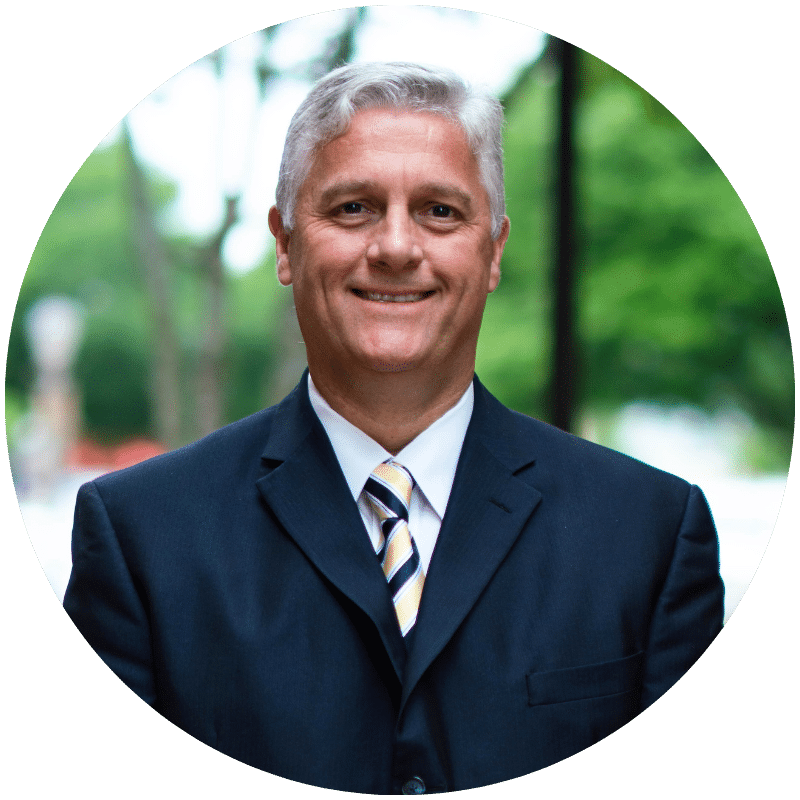Financial Health for Your Peace of Mind
As a healthcare worker, you are used to solving problems and focusing on details. After all, in your career, the stakes can often be life or death.
But it can be more difficult to navigate the maze of personal finance. In this series, we dive into the specific financial issues facing medical professionals at every career stage. We will provide straightforward answers to the economic concerns faced by doctors, nurses, administrators, and other healthcare workers.
Starting a career in healthcare often looks like twelve-hour shifts, long hours on call, and making quick decisions for patient care. If you are like most early-career medical professionals, you are focused on the transition from a supervised classroom into the fast-paced environment of a surgery suite or ICU ward, not on the deductions line on your pay stub. And when you come home from caring for your patients, you have your own family and life to focus on.
So, what happens when that first student loan payment is due?
Med school is expensive. According to the Association of American Medical Colleges, the average med school debt among students at a public university was $194,000 in 2021. (That amount is even more for graduating students from private schools.) When combined with the student loans from undergraduate programs, new doctors can face a debt load of over $300,000.
While the average nurse starts their career with less debt (anywhere from $20,000 -$24,000 on average), nurses may struggle to pay off those student loans. According to Medscape, 20% of nurses over 55 still have student loan payments.
Since so many medical professions require advanced degrees, student loans are a fact of life for many other professionals in healthcare, such as pharmacists, hospital administrators, clinical social workers, and physician assistants.
Once you start working, it is important to make a plan to address student loan debt, whether through student loan forgiveness or a repayment plan.
Student Loan Forgiveness
Public Service Loan Forgiveness (PSLF): If you work for a non-profit or public sector healthcare provider, you could be eligible for tax-free forgiveness of your remaining federal direct loans after 120 payments (10 years). This works best in conjunction with an income-driven repayment plan (below). Employees (not just doctors and nurses) at many non-profit hospitals, including Self Regional in Greenwood and Prisma Health in Greenville are eligible! You can see if your employer is qualified for the PSLF program here.
National Health Service Corps (NHSC) Loan Repayment Program: This program is open to students in their last year of medical, nursing, or dental school who are located in or willing to relocate to a Health Professional Shortage area. If you are interested in paying off your loans faster, the NHSC offers as much as $120,000 in loan repayments in exchange for three years of work.
Depending on your career, location, and type of loan, you may also want to consider other programs. The AAMCE website provides a database of student loan forgiveness options that include the Nurse Corps Loan Repayment Program, the Indian Health Service (IHS) Loan Repayment Program, and various state-run programs.
Some of these loan forgiveness programs may come with a reduced initial salary or require moving to a new area. A financial advisor can help you decide whether loan forgiveness makes sense for you, by looking at your potential income and costs and helping you map out your options.
Student Loan Repayment
Fixed Repayment: The standard repayment plan for federal student loans is a fixed, 10-year repayment plan. There are also graduated plans, which will also pay off the loans in 10 years but start with lower payments and increase the amount over time.
Income-Based Repayment: IBR plans base your monthly loan payment on your income and family size. While this often lowers what you pay each month, it can cause you to pay more interest over time. In the past, this led to some borrowers owing more in interest than the original value of the loan. However, new updates to the SAVE Plan have given borrowers improved options.
Special Considerations for Doctors
SIGNING BONUSES
“While doctors often graduate med school with significant debt, entering the workforce should provide an opportunity to get a head start on financial stability. When I am working with doctors, I often recommend that they use a portion of their signing bonus to pay off debt.”
SAVE Repayment Plan: The SAVE plan caps your monthly payment at 10% of your discretionary income. In addition, if your full monthly payment does not cover the accrued interest, the SAVE plan will forgive the rest of the interest that accrued. This means your balance never grows from unpaid interest while you are making payments.
Remember, a financial advisor can help you run the numbers on these repayment options! They can help you decide if an income-based or fixed repayment option makes the most sense for you and your family.
For early-career healthcare workers, handling debt is only one side of the coin. It is also critical to start saving. In our next article, we’ll cover how to begin making contributions to a retirement plan and how your retirement plan works.
We are here to help, whether by answering a quick question or building an in-depth personalized financial plan. Reach out today!

John W. Cooper, CFP®
Senior Private Client Advisor
During his first decade in the workforce, John worked at Self Regional Hospital (then Self Memorial) in materials management. His previous experience at the hospital provided him with a unique insight into the financial challenges that healthcare workers face.
Even after pivoting to a career as a financial advisor, John has remained dedicated to supporting nurses, doctors, and administrators. Instead of ordering new operating room equipment, he now provides customized, informed financial plans for his former colleagues.
Sources and Further Reading
What’s The Average Medical School Debt In 2024? – Forbes Advisor
Average Nursing Student Debt: How Much Do Nurses Owe? – NerdWallet
Public Service Loan Forgiveness | Federal Student Aid
NHSC Students to Service Loan Repayment Program | NHSC (hrsa.gov)
Loan Repayment/Forgiveness/Scholarship and Other Programs (aamc.org)
Student Loan Forgiveness for Nurses: What’s Best for You? – NerdWallet
6 Best Medical School Loan Forgiveness Programs For Doctors | Bankrate
Repaying Student Loans 101 | Federal Student Aid
Repayment Plans | Federal Student Aid
Want to receive financial guidance in your inbox?
Excerpts from or links to this article on the Greenwood Capital Insights page have been included in Greenwood Capital social media pages and distributed Greenwood Capital newsletter. As is the nature of social media, the general public is able to post comments and/or “likes” in response to these excerpts and/or links. These comments are unsolicited and are posted by either clients or non-clients, which could be interpreted as client testimonials or public endorsements, respectively, and no cash or non-cash compensation is provided. A conflict of interest could exist related to unsolicited posts as Greenwood Capital and its investment adviser representatives could indirectly benefit from these posts.











